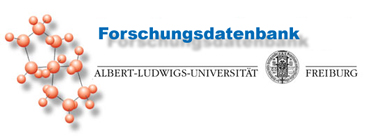| [Back to search results] |
 |

Bacterial population genomics.
Description of the project:- no english description available -Runtime:
Evolutionary microbiologists, studying bacterial species, are facing various challenges, which all require a sound probabilistic modeling. 1.) Recombination in bacteria: Since bacterial species reproduce clonally, the standard definition of "species" as a reproducing unit does not apply. However, closely related species have the possibility to exchange DNA leading to different levels of clonality of bacteria (Smith, J. M., N. H. Smith, M. O’Rourke, and B. G. Spratt. How clonal are bacteria? Proc. Natl. Acad. Sci. USA, 4384-4388, 1993). This dependence of recombination on genealogical distance can be implemented into the common genealogical framework of population genetics (C. Fraser, W. P. Hanage, and B. G. Spratt. Neutral microepidemic evolution of bacterial pathogens. Proc. Natl. Acad. Sci. USA, 102:1968-1973, 2005). We analyse the resulting genealogies in some mathematically tractable limits. 2.) The distributed genome: Bacterial genomes are highly variable. Other than in eukaryotic genomes, different individuals from a bacterial population have different genes. This leads to the distributed genome hypothesis, which states that single bacteria contribute only little to the total genomic variation of a species. Estimating the number of new genes found in any new individual genome leads to the pan-genome model (Tettelin, H., D. Riley, C. Cattuto, and D. Medini. Comparative genomics: the bacterial pan-genome. Current Opinion in Microbiology 11 (5), 472-477, 2008). We take a different approach inspired from population genetics. Combining a common coalescent-based model with the idea of gene content phylogenies (Huson, D. H. and Steel, M. Phylogenetic trees based on gene content. Bioinformatics, 20, 2044-2049, 2004) leads to precise predictions for distributed genomes.
Additional information: http://www.stochastik.uni-freiburg.de
Phone: 0761/203-5667
Email: peter.pfaffelhuber@stochastik.uni-freiburg.de
Start of project: 01.05.2008Project Management:
End of project: 31.12.2015
Albert-Ludwigs-University Freiburg
Prof. Dr. Peter Pfaffelhuber
Abteilung für Mathematische Stochastik
Prof. Dr. Peter Pfaffelhuber
Ernst-Zermelo-Straße 1
79104 Freiburg
Germany
Phone: 0761/203-5664
Fax: 0761/203-5661
Email: sekretariat@stochastik.uni-freiburg.de
http://www.stochastik.uni-freiburg.de/pfaffelhuber
Actual Research Report
Contributors:
- Baumdicker F
- DFG
- Baumdicker F, Hess W R, Pfaffelhuber P: The diversity of a distributed genome in bacterial populations. Ann Appl Probab, 2010; 20 (5): 1567-1606. (download: http://arxiv.org/abs/0907.2572)